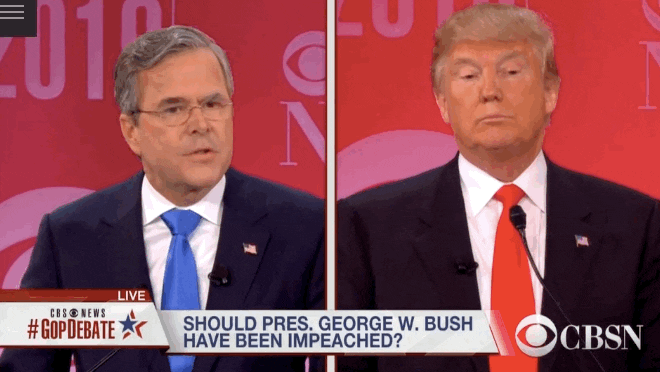To judge from the polls and his recent victory in New Hampshire, Donald Trump is the Republican front-runner. Yet in his critique of the foreign policy of President George W. Bush unleashed in tonight’s GOP debate, Trump sounded not at all like a Republican but like the most radical anti-war activists of the early 21st century. He said the Iraq war was a disaster which was sold by lies about weapons of mass destruction. When told that Bush kept America safe, Trump snorted, “How did George W. Bush keep us safe when the World Trade Center came down during his reign?”
Bush’s heterodoxy earned him boos from the audience, but might rally his legion of followers watching from home. The best way to understand Trump is in psychological terms: He represents the return of the repressed. There were countless Republicans who had doubts about the Iraq war and its consequences but kept quiet for the sake of partisanship. Trump allows those disaffected Republicans, who were unhappy with the Bush years and also by the actions of the Republican establishment, to have a voice—and it’s earned him a large, devoted following.
